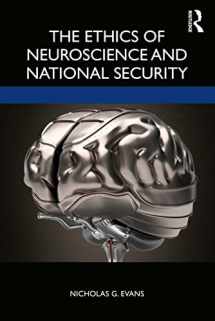
The Ethics of Neuroscience and National Security
Book details
Summary
Description
New advances in neuroscience promise innovations in national security, especially in the areas of law enforcement, intelligence collection, and armed conflict. But ethical questions emerge about how we can, and should, use these innovations. This book draws on the open literature to map the development of neuroscience, particularly through funding by the Defense Advanced Research Projects Agency, in certain areas like behavior prediction, behavior modification, and neuroenhancement, and its use in the creation of novel weapons. It shows how advances in neuroscience and new technologies raise ethical issues that challenge the norms of law enforcement, intelligence collection, and armed conflict, broadly grouped under the term "national security." Increasing technological sophistication without attention to ethics, this book argues, risks creating conditions for the development of "dual-use" technologies that may be prone to misuse, are grounded in an incomplete understanding of the brain, or are based on a limited view of the political contexts in which these technologies arise. A concluding section looks at policy and regulatory options that might promote the benefits of emerging neuroscience, while mitigating attendant risks.
Key Features:
First broad survey of the ethics of neuroscience as it applies to national security
Innovative ethical analysis over a range of cross-cutting technologies including behavior prediction and modification tools, human enhancement, and novel lethal and nonlethal weapons
Ethical analysis covering all stages from the development, testing, and use (or misuse) of these technologies; and decisions from the individual scientist to the nation state
Strong policy focus at multiple levels, from self-governance to international regulation
Combination of philosophical analysis with grounded, practical recommendations


We would LOVE it if you could help us and other readers by reviewing the book
Book review



